In today’s fast-paced digital world, marketing has evolved beyond traditional print and broadcast channels. Digital marketing has become the cornerstone of modern business strategies, offering tools and platforms that provide unprecedented levels of targeting, engagement, and measurement. Whether you are a small business owner, a marketing professional, or a student, understanding digital marketing is crucial in navigating the current business landscape.
What is Digital Marketing?
Digital marketing refers to all marketing efforts that use the internet or an electronic device. Businesses leverage digital channels such as search engines, social media, email, and websites to connect with current and prospective customers. Unlike traditional marketing, digital marketing allows real-time communication and performance tracking, making it significantly more agile and cost-effective.
Key Components of Digital Marketing
1. Search Engine Optimization (SEO)
SEO is the process of optimizing web content to rank higher in search engine results. The goal is to increase organic (non-paid) traffic from users actively searching for relevant information.
There are three primary types of SEO:
- On-page SEO focuses on content quality, keyword usage, and meta descriptions.
- Off-page SEO involves backlinks from other reputable websites.
- Technical SEO ensures website infrastructure supports search engine crawling and indexing.
By improving SEO, businesses can attract users at the exact moment they are looking for products or services.
2. Content Marketing
Content marketing revolves around creating valuable, relevant content to attract and retain an audience. Rather than directly promoting a product, it aims to provide information that solves problems or answers questions.
Common forms include:
- Blog articles
- Videos
- Infographics
- E-books
- Webinars
Effective content not only builds brand awareness but also boosts SEO and nurtures leads through the sales funnel.
3. Social Media Marketing (SMM)
With billions of users across platforms like Facebook, Instagram, LinkedIn, and TikTok, social media is essential for building brand presence and community engagement.
Strategies include:
- Organic content (posts, stories, reels)
- Paid ads
- Influencer partnerships
- Social listening and customer service
Each platform caters to different audiences and content formats, requiring tailored strategies for maximum effectiveness.
4. Pay-Per-Click (PPC) Advertising
PPC is a model where advertisers pay a fee each time someone clicks on their ad. Google Ads is the most common PPC platform, though similar systems exist on Bing, Facebook, and LinkedIn.
PPC ads appear above organic results and can drive immediate traffic to a website. With features like geo-targeting, demographic filters, and remarketing, PPC offers highly targeted reach.
5. Email Marketing
Email marketing remains one of the highest ROI digital marketing strategies. It enables personalized communication with prospects and customers.
Types of emails include:
- Newsletters
- Promotional offers
- Abandoned cart reminders
- Product updates
Automation platforms like Mailchimp or HubSpot can help segment audiences and send tailored messages based on user behavior.
6. Influencer and Affiliate Marketing
These methods involve promoting products through third-party individuals or websites:
- Influencer marketing uses individuals with strong online followings to endorse products.
- Affiliate marketing pays commissions to partners who drive sales via unique tracking links.
Both strategies rely on trust and social proof, which can be highly effective when targeting niche audiences.
Why Digital Marketing Matters
1. Cost-Effectiveness
Digital campaigns can be launched with minimal budget compared to traditional media. Small businesses, in particular, benefit from cost-efficient strategies like SEO and social media.
2. Measurable Results
Analytics tools like Google Analytics or Facebook Insights allow marketers to track campaign performance in real time. This data helps in optimizing strategies and allocating budgets more effectively.
3. Global Reach
Digital marketing breaks geographical barriers, enabling even small businesses to reach international markets with ease.
4. Personalization
Marketers can customize content and messaging based on user behavior, location, preferences, and stage in the buying journey. Personalized marketing significantly improves engagement and conversion rates.
5. Real-Time Interaction
Unlike traditional media, digital platforms allow two-way communication. Brands can engage directly with users, answer queries, and build relationships through comments, chatbots, and live events.
Trends Shaping Digital Marketing in 2025
1. Artificial Intelligence and Automation
AI is transforming marketing by enabling smarter data analysis, chatbots, predictive analytics, and personalized content recommendations.
2. Voice and Visual Search
With smart speakers and image recognition technologies growing, marketers are optimizing content for voice queries and visual platforms like Pinterest and Instagram.
3. Video Content Dominance
Short-form videos (like TikTok, YouTube Shorts, and Instagram Reels) are becoming the most consumed content type, making video marketing essential for engagement.
4. Privacy and Data Regulations
Stricter privacy laws like GDPR and evolving cookie policies mean marketers must prioritize ethical data collection and transparent communication.
5. Omnichannel Strategies
Customers now interact with brands across multiple channels and devices. A consistent and connected omnichannel experience is critical for success.
Challenges in Digital Marketing
While the opportunities are vast, digital marketing also presents challenges:
- High competition in crowded digital spaces.
- Constant algorithm updates on search and social platforms.
- Ad fatigue from overexposure to promotional content.
- Security concerns over user data and platform vulnerabilities.
- Skill gaps in new technologies and tools.
Overcoming these challenges requires continuous learning, flexibility, and a customer-centric mindset.
Conclusion
Digital marketing is no longer optional—it’s a necessity in the modern business environment. Its ability to reach the right audience, at the right time, with the right message makes it a powerful tool for growth and engagement. By understanding the various channels and strategies, and staying current with emerging trends, businesses and professionals can harness the full potential of digital marketing to drive success in 2025 and beyond.


